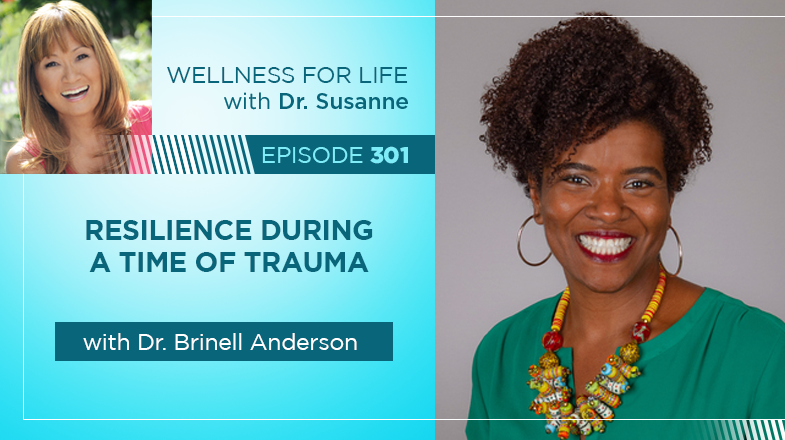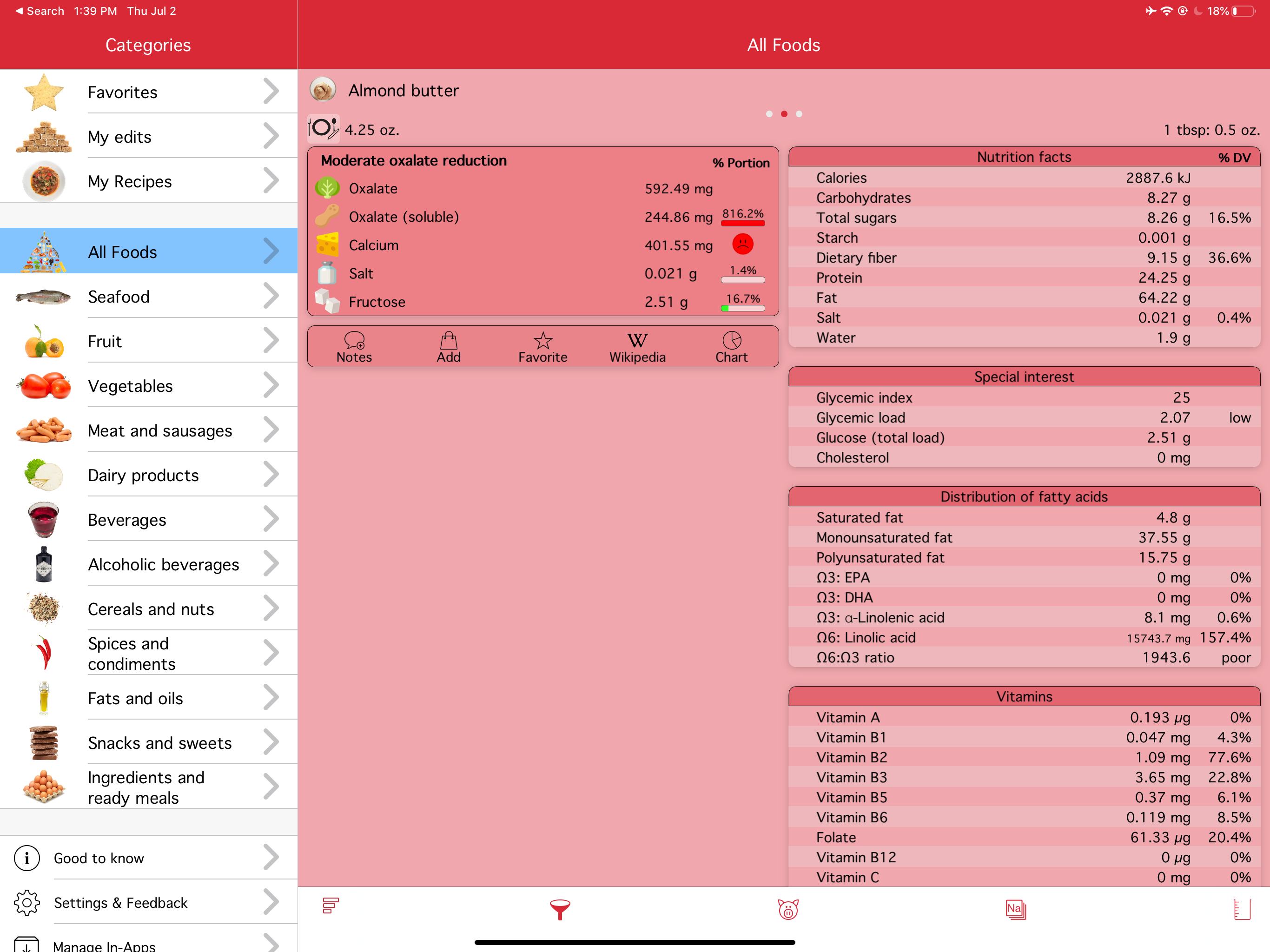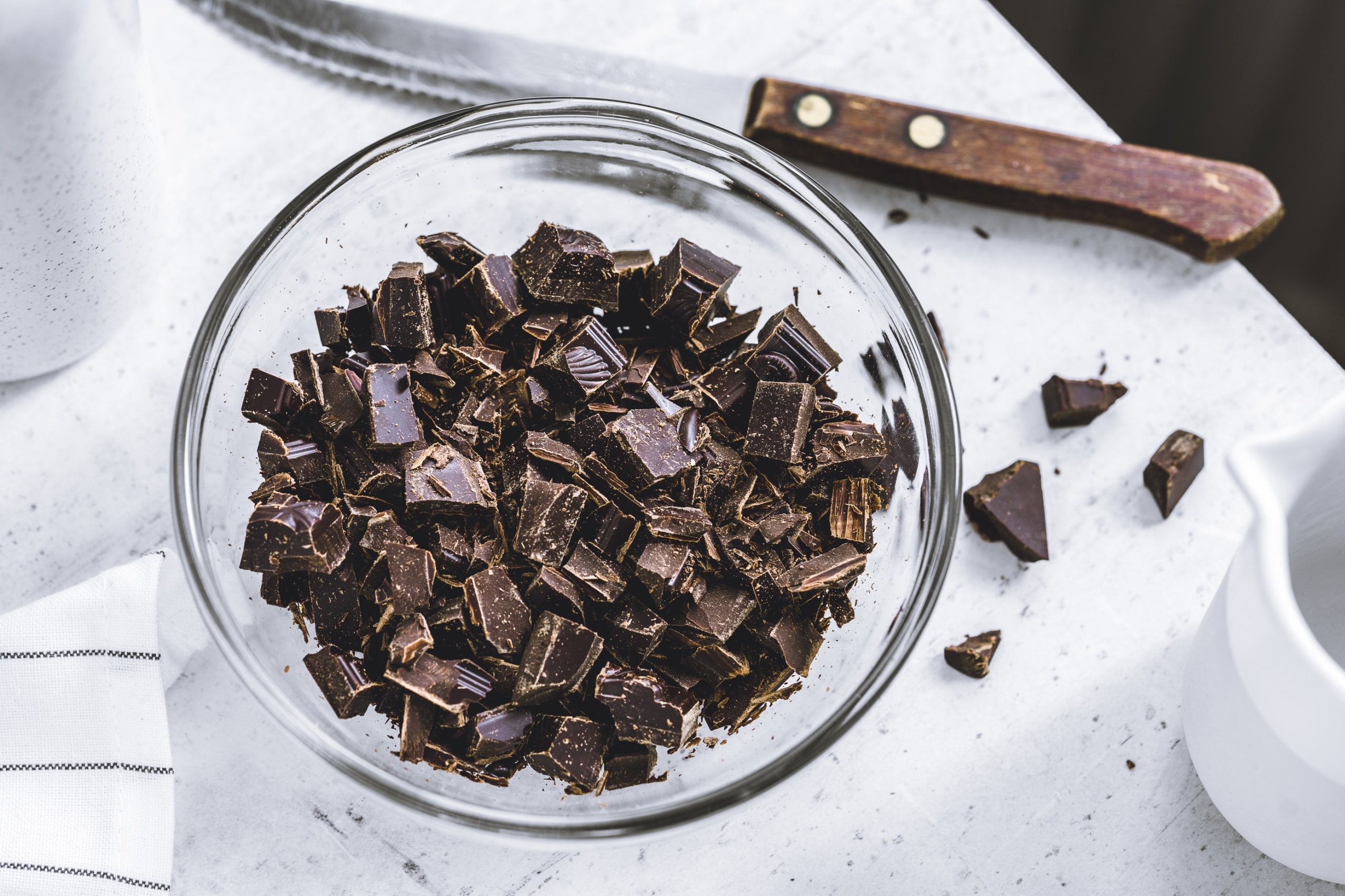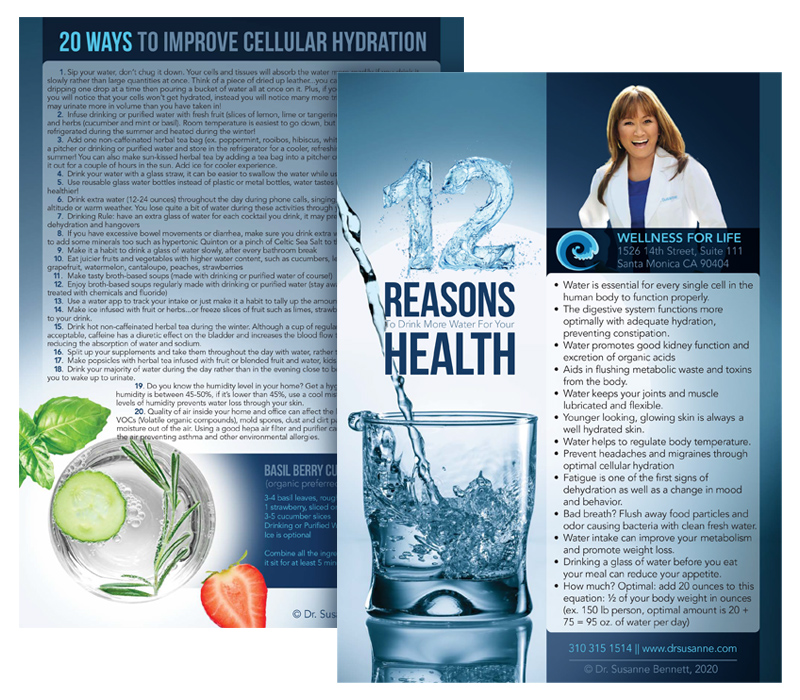
Dr. Brinell Anderson is an African-centered, psychoanalytically-informed clinical psychologist. She is available for speaking engagements & workshops on mental health and wellness with a unique emphasis on issues affecting the Black community.

Dr. Brinell Anderson is an African-centered, psychoanalytically-informed clinical psychologist. She is available for speaking engagements & workshops on mental health and wellness with a unique emphasis on issues affecting the Black community.
People frequently underestimate the damaging effects of high oxalate levels within their system. Oxalates originally evolved in particular plant species as a deterrent to the animals wanting to consume them. (Obviously, if you’re a plant, the harder you are to digest, the less likely you are to be eaten.) But people neglect to understand that by interfering with human digestion, oxalate accumulation also contributes to a slew of chronic conditions that effect that entire body.
Like most dietary content, oxalates are typically broken down by the gut microbiome, properly excreted and processed without incident. The danger comes when it fuses with calcium that disperses itself in a spread of inflammatory over-absorption. The term “leaky gut” refers to the state of maldigestion when weakened intestinal mucosal barrier allow the wrong molecules to pass through their walls and enter the bloodstream. This loss of regulation sends oxalates into urine, tissues — and potentially to the regions of the brain that regulate hormones.
It’s a vicious cycle. Oxalate shards fail to break down in the gut, microbial overgrowth permits them to bind and thrive, and they tear at intestinal lining causing excessive inflammation. Before long, you’ve got chronic diseases playing out across multiple organ systems in a situation that will only continue to exacerbate itself without diet and lifestyle modifications.
Kidney stones, autoimmune diseases, irritable gut symptoms — the scary reality is these conditions build up slowly over time, sometimes barely registering in our awareness until it’s too late. Take urinary stones for example. Nobody plans a 3am trip to the ER because they woke up feeling like a knife was lodged in their kidney, but eight out of ten kidney stones are classified as calcium oxalate stones. That stone that has you writhing in the waiting room has actually been in the process of forming over weeks, months and even years.
Combatting both oxalate levels themselves, along with the conditions they inflict, requires a threefold approach:
Correcting Microbial Overgrowth
Most healthy adults harbor trace amounts of candida yeast within their digestive tract. Healthful bacteria like probiotics will typically keep it in line, but when antibiotics, consuming too much sugar and other factors offset one’s microbial balance, candida can get out of hand — sometimes to the point of infection — and accelerate oxalate production.
The better you can attend to your gut health by treating and preventing candidiasis (yeast infections) the better you’ll limit oxalate production and the barrage of health liabilities it presents. Eliminate any food with yeast or excess sugar so the infection has nothing to feed on. Olive leaf extract is an excellent herbal formula that helps reduce yeast overgrowth in the gut and skin.
In addition to minimizing microbial overgrowth in your gut, remember to rotate in fermented foods such as kimchi with high levels of lactic acid bacteria (probiotics) that aid in the breakdown of oxalate molecules and fight against those sharp calcium clusters that tear up your intestines. These strains of good bacteria are essential to a balanced microbiome and must be regularly replenished.
Monitoring Oxalate Intake
Now is the time to familiarize yourself with the foods and dishes that might be filling your gut and body with an undue volume of oxalate excess. The Oox App for the Dietary Management of Kidney Stones and Gout brilliantly lists and describes a variety of potentially problematic food, and the amounts of oxalate they contain, plus more. Get the Kidney Stones tool (highly recommended to get the upgraded version for $4.99) and use it as a fast and accessible resource for planning meals and double-checking the oxalate levels you’re likely to encounter.

Of course, you won’t have to place a ban on every food you enjoy, but this is an easy way to keep track of just how much oxalate you’re consuming and ensure that your total intake isn’t more than your gut can sensibly handle.
Use the app to count up how much oxalates you are eating per day in milligrams. There are two types of oxalates you can count up that is in the OXX app– oxalates and soluble oxalates. Soluble oxalate means how much you are absorbing into the blood stream and oxalate is referring to the total amount of insoluble and soluble oxalates. I look at the total number of oxalates ingested, not just the soluble. Insoluble oxalates that’s not absorbed directly into circulatory system can still cause a great deal of discomfort and inflammation in the digestive tract.
Once you know your total, cut the number of milligrams by half, and that will be your daily allowance for 3-4 days. If your body feels good, then you can go down further by 50 mg less for another 3-4 days, until you have reached 150 mg of oxalates per day. For example, you are ingesting 500 mg/day of oxalates, divide it in half, then 250 will be your daily allowance of oxalates for a few days. Then go down to 200 mg of oxalates per day, after a few days, you can go down to 150 mg. This may be your daily limit for weeks, if not months. The more you have been eating oxalates, the longer it will take for you to cleanse out and minimize your symptoms. If you find that you are taking in thousands of milligrams, then cut it down by half again and again until you get to 250 mg, and then drop 50 mg every few days until you get down to 150 mg.
Some of my patients really feel good at 150 mg of oxalate intake, for others who are highly sensitive, they may do better at 100 mg per day.
If oxalates are one of the root causes of your chronic symptoms or illness, you will be pleasantly surprised how good you feel in a short period of time! Everything, from minor irritations like gas, bloating, constipation or diarrhea, to serious illnesses like fibromyalgia, rheumatoid arthritis, lupus, and eczema — all can be improved and potentially prevented.
Can Supplements Help?
Regardless of what’s on your plate, taking specific supplements alongside your mealtime food servings can drastically aid in oxalate reduction. Vitamin E, selenium, and arginine can fend off oxalate damage, and calcium citrate is your best friend. As it binds with the oxalates in consumed foods, it prevents them from absorbing into your body and invading your tissues and kidneys.
It may take weeks or even months to reduce oxalate crystals from forming internally, but once you reduce your body burden of oxalates, even kidney stones can be broken down and gently eliminated without pain! After a protocol of proper supplementation, urine samples will present with tiny glass-like crystals or sand — the remnants of stones that were broken up and passed without intervention.
Although calcium citrate with meals can mitigate oxalate overload, vitamin C (ascorbic acid) intake can increase the synthesis of oxalates in the body. Minimize your vitamin C intake down to 250 – 500 mg per day if you are prone to kidney stones and high oxalate symptoms.
Remember: lowering oxalate levels must be done slowly and methodically to avoid aggravating detox symptoms from “oxalate dumping.” This is a gradual healing process but, with diligence and attention, and by carefully following the recommendations above, you’ll be well on your way to a more optimized and disease-free life!

Dr. Thomas O’Bryan DC, CCN, DACBN
When it comes to getting healthy, Dr. Tom O’Bryan’s goal for you is “Making It Easy To Do the Right Thing”. As an internationally recognized, admired and compassionate speaker focusing on food sensitivities, environmental toxins, and the development of autoimmune diseases, Dr. Tom’s audiences discover that it is through a clear understanding of how you got to where you are, that you and your Dr. can figure out what it will take to get you we
In November 2016, Dr. O’Bryan released Betrayal: The Autoimmune Disease Solution They’re Not Telling You, an investigation into why our immune system, designed to protect us, begins attacking our own tissue (autoimmunity). Currently, over 500,000 people worldwide have watched the Docuseries. www.betrayaldocumentary.com
Dr. O’Bryan is considered a ‘Sherlock Holmes’ for chronic disease and teaches that recognizing and addressing the underlying mechanisms that activate an immune response is the map to the highway towards better health. He holds teaching Faculty positions with the Institute for Functional Medicine and the National University of Health Sciences. He has trained and certified tens of thousands of practitioners around the world in advanced understanding of the impact of wheat sensitivity and the development of individual autoimmune diseases.
He is the founder of www.theDr.com and the visionary behind The Gluten Summit – A Grain of Truth, bringing together 29 of the world’s experts on the gluten connection to diseases, disorders, and a wide-range of symptoms and ages. You can find this info at www.theglutensummit.com.
His 2016 ground-breaking book, winner of the National Book Award and ranked #1 in several categories on Amazon.com, ‘The Autoimmune Fix’ outlines the step-by-step development of degenerative diseases and gives the tools to identify our dis-ease process years before the symptoms are obvious and how to turn your health around, one step at a time.
Here is the gift we would like to offer your listeners.
https://thedr.com/demystifyingdetox/
Thank you for listening to my recent interview. My team has created three guides to help you detox your home. Each reference guide focuses on a different room in your home. I also have some surprise gifts for you.

Dr. Nicole Avena is a research neuroscientist, author and expert in the fields of nutrition, diet and addiction. She received a Ph.D. in Neuroscience and Psychology from Princeton University, followed by a postdoctoral fellowship in molecular biology at The Rockefeller University in New York City.

Judith Finlayson is a bestselling author who has written books on a variety of subjects from personal well-being and women’s history to food and nutrition. A former national newspaper columnist for The Globe and Mail, a magazine journalist and a board member of various organizations focusing on legal, medical and women’s issues, she is also the author of over a dozen cookbooks. Judith lives in Toronto.
If you follow nutrition news at all, then you’ve probably heard about a molecule present in many plant foods called oxalate (aka oxalic acid), which has been at the heart of some debate in the health world for years now, due to it’s potentially damaging effects within the human body.
Many plants produce oxalates as a natural pesticide, which helps to deter insects and other critters from eating them. Our body has the ability to eliminate oxalates through our kidney/bladder system, transporting it in our urine as with any other metabolic waste, but proper gut health and a balanced microbiome are also necessary in order for the oxalates to be broken down and excreted from the body.
And we’re pretty much all dealing with some degree of compromised gut health these days due to factors like chronic stress and lack of quality sleep, the overuse of antibiotics in our medicine and also found in the dairy/animal proteins we eat, highly processed foods, and pollution.
But if you have leaky gut, SIBO (small intestinal bacterial overgrowth), parasites or another inflammatory gut condition, you’re more likely to absorb and retain higher amounts of oxalate in your body. So it’s no surprise then that many people are experiencing health issues related to oxalate consumption.
The good news? Certain strains of good (probiotic) bacteria living in our gut can break down oxalate in the food we eat, which is another reason that a healthy, balanced gut microbiome is so critical for our health. Wild fermentation of high oxalate vegetables like kimchi, sauerkraut, and pickles has been found in studies to lower the levels of oxalates significantly during the culturing process.

So please eat your fermented veggies every day for optimal health!
Have you experienced any of these troublesome symptoms or health issues? If so, check out the list of high oxalate foods and consider whether oxalate consumption may be an issue for you.
Oxalate molecules combine with calcium (calcium oxalate crystals) inside your body and create a build-up of sharp glass-like grains (aka kidney stones, bone spurs, and tissue calcification) that can cause mechanical damage in various organs and tissues. If you’ve ever had a kidney stone, you know that the pain is excruciating (it’s said to be more painful than childbirth), so anything we can do to avoid those is very well worth it.
Many autoimmune diseases have been linked with high oxalate consumption, but sadly most people suffering from these conditions have no idea that the reportedly ‘healthy’ foods that they’re eating may actually be exacerbating their symptoms by triggering inflammatory reactions throughout their body.
Here is a list of some of the highest oxalate-containing foods that are commonly eaten, so you’ll want to avoid these as much as possible while on a low-oxalate diet.

Although all of these foods contain a lot of high quality nutrition in general, their high level of oxalate means that they may be contributing to some of your underlying health issues.

You can find a comprehensive list of oxalate levels in foods as well as build your favorite low oxalate recipes in an app called OOX (says it’s for gout and kidney stones). I highly recommend that you get the upgraded version for kidney stones, and if you suffer from gout, then this app will also be very helpful for you!
I suggest this app regularly to my patients for it’s comprehensive oxalate level info in foods, and I also appreciate that it provides you with the nutritional values of each food, such as calories, types of fats, vitamins and minerals, etc.
The first thing that you want to do is count up how many milligrams of oxalate you’re eating per day.
On the app, there are two versions of oxalates listed for each food item: “Oxalates” and “Soluble Oxalates”. Count up your daily intake of “Oxalates” in milligrams (mg) for each food per serving, not the soluble oxalates.
Soluble oxalate levels are referring to the oxalates that are actually absorbed into the bloodstream, which can cause systemic issues including kidney stones and arthritis.
Insoluble oxalates can stay in your intestines and irritate your digestive system as they’re moving down the tract for elimination, so I feel that the insoluble oxalates are just as important to limit as the soluble type.
Please note: If you’re currently eating a very high oxalate diet (over 500mg per day) and you reduce your intake too quickly, you may experience detox-like symptoms called “oxalate dumping”, such as a candida yeast flare up, rashes/hives, painful urination, and mood disturbances. I’ll go more into this in my next blog post!
If this happens, you can simply back off of the reduction plan for a bit and then resume once you feel ready, but I work closely with my patients to help ensure that this doesn’t happen, or if it does, the detox symptoms are minimal.
I use the Great Plains Laboratory Organic Acids Test (OAT) for my patients to provide the exact level of oxalates excreted in their urine, and as a bonus, it also gives us an indirect read of my patients’ candida levels.
This is helpful because candida actually produces small amounts of oxalate, so if you have a candida overgrowth, you can still have symptoms even if you’re keeping your dietary oxalate levels extremely low.
If you think you may benefit from a low oxalate diet and need help with testing or support in implementing a low oxalate diet, contact my office at help@drsusanne.com or (310) 315-1514 to set up a consultation with me.
And stay tuned for my next blog post, where I’ll go into a lot more detail on the potential dangers of eating a high oxalate diet and how to best taper down without detox symptoms, including an oxalate cleanse challenge that we can do together!
To your most vibrant life,
Dr. Susanne

Christine Horner, MD, FACS, is a nationally known surgeon, author and professional speaker and holds two board certifications: the National Board of Surgery and the National Board of Plastic Surgery.
Horner was recognized as a leader in her field shortly after starting her plastic and reconstructive surgery practice because she successfully ran a national campaign to pass laws requiring insurance companies to pay for breast reconstruction following mastectomy. Her five-year crusade with the Breast Reconstruction Advocacy Project (BRA Project) led to the passage of a federal law that was signed by President Bill Clinton on Oct. 21, 1998. The law was unprecedented because it was the first law Congress passed requiring insurance companies to pay for a specific surgical procedure.
Horner is the award-winning author of, “Waking The Warrior Goddess: Dr. Christine Horner’s Program to Protect Against and Fight Breast Cancer,” (3rd Edition/2013/Basic Health) and is one of the country’s leading authorities on breast cancer prevention. Her most recent book, “Radiant Health, Ageless Beauty” (Elgea Publishing, 2016), won the 2017 Elit Award for Best Book in Health, Medicine and Nutrition and is a 30-day program to discover your own extraordinary health, beauty and longevity.

Denise is a national diabetes reversal and holistic lifestyle coach, speaker, and author of The Virgin Diabetic: Reverse the Effects of Type 2 Diabetes, Reduce Medication, and Improve Your Glucose Levels, Second Edition. Like millions of Americans, she was burdened with type 2 diabetes, prescribed a handful of medications, four daily insulin shots, and endless trips to the doctors. After hearing from the medical community there was no hope to stop the insanity, Denise realized she needed a new course to regain her health naturally. Denise restored her health through holistic lifestyle changes. No more medication – no more insulin injections – no worry of drug side effects.
Denise is certified in Holistic Nutrition and Homeopathy. A Certified Six Sigma Green Belt, Denise spent a decade in the laboratory industry. After she received her diabetes diagnosis, she created her blueprint to reverse the deadly effects of diabetes paving the way for diabetics to truly learn how to reduce or eliminate medication and insulin while improving their glucose levels.
Denise’s journey started in Chicago until she and her husband, Larry, found their paradise in Naples, Florida. Denise and Larry love to walk on the beach, golf, and enjoy all that Naples has to offer.
Denise is co-Chair for Blue Zones Project® Retail Food Committee—Southwest Florida, member of the American Nutrition Association, National Association of Nutrition Professionals, and Marco Island Sunrise Rotary Club.

Bruce Alan Kehr, M.D. is founder and president of Potomac Psychiatry. He specializes in helping patients with anxiety, depression, obsessive compulsive disorder, PTSD, life adjustment issues, and bipolar disorder, and frequently lectures on many aspects of psychiatry and psychotherapy, including the use of genetic testing in diagnosing and treating emotional distress; medication adherence, where he is recognized as an expert; and on the neuropsychiatric aspects of traumatic brain injury. He is also the author of the recently published book, Becoming Whole: A Healing Companion to Ease Emotional Pain and Find Self-Love. Dr. Kehr received training in psychotherapy at the Boston Psychoanalytic Institute, where he also completed his training psychoanalysis; and continued his psychoanalytic training in the Washington, D.C. area. He received his BA from the University of Pennsylvania, followed by an MD from the Georgetown University School of Medicine. He is Board Certified by the American Board of Psychiatry and Neurology.

Ilene Smith is the author of Moving Beyond Trauma: The Roadmap to Healing from Your Past and Living with Ease and Vitality. She is a certified professional coach and Somatic Experiencing practitioner who is passionate about helping others explore life with curiosity and exuberance. Her research into Somatic Experiencing and eating disorders has contributed to the importance of Somatic Experiencing and body-based therapies in recovery. Ilene has also worked extensively with patients suffering from addiction. With master’s degrees in exercise physiology and mental health counseling, Ilene blends talking, touch work, and movement to create synergy between a client’s body and mind. In addition to her private practice, Ilene has developed a series of trauma healing workshops and lectures, which she hosts worldwide. She lives in Arizona.
For more information, please visit http://ilenesmith.com/ and follow Ilene on Facebook and Instagram
1526 14th Street, Suite 111
Santa Monica, CA 90404
Telephone: +310 315 1514
Fax: +310 315 1504
Email: help@drsusanne.com
12 Reasons to Drink More Water for Your Health |
|||||||||||
|---|---|---|---|---|---|---|---|---|---|---|---|
 |
|
||||||||||
